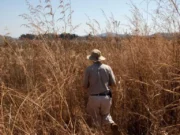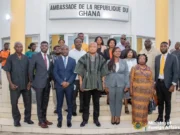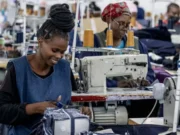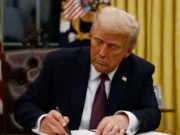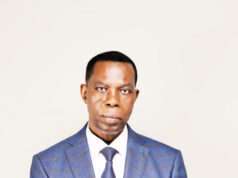President Nana Addo Dankwa Akufo-Addo has stated that the scourge of terrorism and violent extremism will be defeated in the Sahel, West Africa and Africa if the world works towards preventing terrorist attacks, rather than reacting to the menace.
Delivering the Opening Statement at the Inaugural Summit of the Accra Initiative Counter-Terrorism Conference, in Accra, on Tuesday, 22nd November, 2022, President Akufo-Addo stated that the Initiative’s “preventive, rather than reactive, approach should, thus, be viewed as a critical piece of the answer to the overall fight against terrorism and violent extremism in the Sahel and West Africa.”
Even more appropriate, the President stated, is the added advantage of the Initiative’s ability to draw lessons from the challenges and successes of existing and past counter-terrorism frameworks in Africa.
“Whereas we consider our role as distinct, given its preventive rather than reactive dimension, we do believe that our best chance at success will emanate from our ability to manoeuvre our way out of the complexities associated with such inter-governmental frameworks, and avoid the pitfalls that reduced significantly the probability of success for past and existing counter-terrorism frameworks,” he stated.
The Accra Initiative, which according to many, is the brain child of President Akufo-Addo, has, at a relatively young stage in its evolution, successfully demonstrated the imperatives of inter-governmental co-operation and collaboration toward mounting a strong fight against the spread of terrorism and violent extremism from the Sahel region to coastal West Africa.
He said the Conference, which seeks to showcase the Initiative’s substantial successes fully to the world, “aims to draw the attention of the international community to the worsening security situation in the Sahel region, which is threatening to engulf the entire West African region, and shed ample light on the work of the Accra Initiative, identifying both opportunities and challenges which could serve as a basis for forging closer collaboration and co-operation between members of the Initiative and members of the international community.”
This Summit of Heads of State and Government was been preceded by two conferences – the first, which brought together stakeholders from academia, civil society organisations, think tanks and non-state actors from across the world to deliberate issues regarding the threat of terrorism in the Sahel and West Africa, and to share perspectives on the role of the Accra Initiative; and the second at the level of the Ministers of Foreign Affairs, Defence and Security of Member States and foreign partners to firm up outcomes of the conference for non-state actors.”
Further, he said, the summit will also “consider the report of the Ministerial meeting on the conference for non-state actors toward making commitments to strengthening the Accra Initiative in its overall quest to curb the spread of terrorism in West Africa.”
President Akufo-Addo noted that “cognisant of the underlying causes of terrorism in West Africa, the mitigation of which cannot be achieved through military intervention alone, the Accra Initiative should seek to pursue a comprehensive approach that promotes the adoption of social intervention programmes to help address development gaps in vulnerable communities within Member States.
“Certainly, this approach will present the Accra Initiative with opportunities and risks. A key opportunity is that the Initiative will not begin from ground zero. Through the successful conduct of previous joint ad-hoc operations, the ability of Member States to cooperate and collaborate amongst ourselves in pursuit of a common agenda, has stood the test of scrutiny.”
He was hopeful that, “in the end we will strengthen further our co-operation in support of the Accra Initiative, to address the spillover of terrorism from the Sahel region to Coastal West Africa. It is in our collective interest that we succeed in this regard. We owe it to present and future generations.”
Established in 2017 as a mechanism for enhanced intelligence sharing among Member States, the Accra Initiative has evolved in relevance and in stature, capturing the imagination of members of the international community as an innovative, home-grown solution to a regional problem.
Member countries include Ghana, Benin, Burkina Faso, Cote d’Ivoire, Togo, Mali and Niger with Nigeria assuming observer status.





















